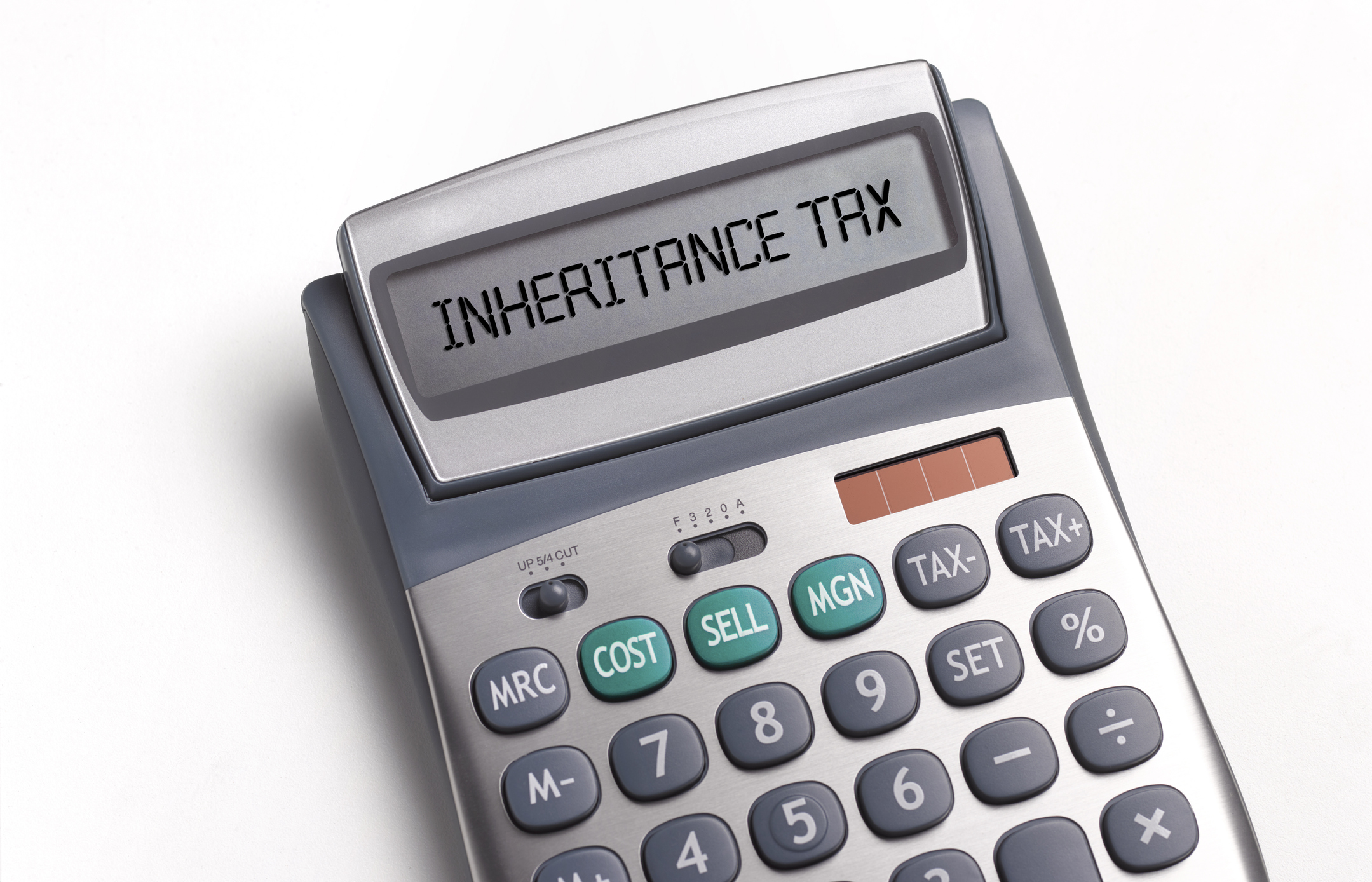Key dates for 2023: here are the dates you need to know when it comes to your money
There is no shortage of important dates to be aware of this year – which are likely to affect your financial health. We run through the key dates in 2023 you need to know about when it comes to your money.


Get the latest financial news, insights and expert analysis from our award-winning MoneyWeek team, to help you understand what really matters when it comes to your finances.
You are now subscribed
Your newsletter sign-up was successful
Want to add more newsletters?

Twice daily
MoneyWeek
Get the latest financial news, insights and expert analysis from our award-winning MoneyWeek team, to help you understand what really matters when it comes to your finances.

Four times a week
Look After My Bills
Sign up to our free money-saving newsletter, filled with the latest news and expert advice to help you find the best tips and deals for managing your bills. Start saving today!
It pays to be prepared and make a note of the important dates in 2023 that could affect your finances. From self-assessment deadlines and tax changes to the energy price guarantee and the state pension increase, here are the key dates you need to know.
31 January – Self-assessment tax deadline
People who have to file self-assessment tax returns must do so by 31 January. It’s also the deadline to pay any tax owed from that return.
It doesn’t end there, either. Self-employed workers are also required to pay a payment on account – this is an advance payment towards your next tax bill, based on your previous tax liabilities. The first payment must be made by 31 January.
MoneyWeek
Subscribe to MoneyWeek today and get your first six magazine issues absolutely FREE

Sign up to Money Morning
Don't miss the latest investment and personal finances news, market analysis, plus money-saving tips with our free twice-daily newsletter
Don't miss the latest investment and personal finances news, market analysis, plus money-saving tips with our free twice-daily newsletter
Remember, payments to HMRC can take a few days, so complete your tax return a few days ahead of the 31 January deadline.
March – The Budget
Every year we have at least one big Budget statement delivered by the chancellor, when he or she runs through the financial forecasts for the year ahead as well as any proposed changes to the tax system.
The Budget is usually delivered in March. The Office for Budget Responsibility has been asked to prepare a forecast by 15 March to accompany the Budget, meaning the Budget could be held on this date or shortly afterwards.
5 March: Rail fares rise
Like last year, the government is freezing rail fares for January and February, meaning fares will officially rise on 5 March 2023.
While the cost of train tickets is usually pegged to inflation, the government has said fare increases for 2023 will be capped at 5.9% – 6.4 percentage points below July 2022’s retail prices index - to help people with the cost of living.
31 March – End of Help to Buy
The Help to Buy scheme involves property buyers gaining an equity loan to supplement their deposit when purchasing a new-build property.
Buyers had to apply for that loan by 31 October 2022, but have until 31 March 2023 to complete the purchase of the property. Homebuyers are expected to have the keys to their home by 6pm.
1 April ‒ Energy Price Guarantee rises
One of the measures brought in by Liz Truss’s short-lived government was to support households with soaring energy price bills with the Energy Price Guarantee. This froze the unit cost of gas and electricity, meaning the average typical household bill comes to around £2,500 a year - the more you use, the more you pay.
On 1 April 2023, the guarantee will rise to a higher level, meaning the average typical household will have to pay around £3,000 for their annual energy bill. This guarantee will be in place until April 2024. You can read more about energy prices in our article will energy prices fall in 2023?
Though there is little you can do about the energy price, there are things you can do to keep energy costs low, which we explain in our article.
1 April – Changes to household bills
Changes will take place to a host of household bills from the start of April.
For example, many broadband and mobile phone providers impose price increases each year that are tied to the rate of inflation. These increases occur even if you are mid-contract.
If you are at the end of your contract, now is a good time to shop around and lock in a new deal.
Water bills are also due to change from April. Annual water bills are divided into 12 monthly payments, with the new prices beginning from the start of April. Many households will see their water bills fall next year, as water firms have failed to meet targets imposed by Ofwat, the water regulator, on issues such as pollution and water supply interruptions.
However, other factors like inflation, could mean water bills rise significantly, depending on your water supplier.
You can't change your water provider to get a cheaper water deal, but you could potentially be better off using a meter instead, depending on the size of your house and the number of people living in it. Use the calculator from Ofwat to see if you are better off with a meter.
And then there is council tax. We don’t yet know the scale of the increases to council tax, however last year’s Budget included the detail that councils will be able to raise tax by 3% - plus another 2% for social care – without holding a referendum. With rising social care costs and other financial pressures, many local authorities are likely to raise council tax as much as they possibly can.
1 April: National Living wage and minimum wage rise takes effect
Chancellor Jeremy Hunt announced in November that the National Living Wage for workers aged 23 and over would increase by 9.7% from £9.50 to £10.42 an hour. The rates for those aged under 23, and apprentices, will also rise too.
5 April – End of the tax year
The 2022-2023 tax year ends on 5 April, so if you’re planning to utilise your entire annual ISA allowance, the full £20,000 will need to have been paid into your accounts by this date. This also includes junior ISAs, which come with a separate annual allowance of £9,000 per tax year.
Anyone wanting to pay extra into their pension should also try and do this before 5 April. Most people can contribute up to £40,000 to their pension pot each tax year and benefit from tax relief. However, those with an annual income – including salary, and income from savings and investments – of more than £200,000, or those who earn less than £40,000 a year, have a lower pension allowance.
To find out how the pension allowances work, and for information about how to “carry forward” unused allowances into the next tax year, take a look at this article.
6 April – New tax year: pensions and benefits
The start of the next tax year is 6 April, and this is a date when increases to various state benefits and tax reliefs will kick in.
For example, the state pension and pension credit will both rise by 10.1% while universal credit will increase by the same percentage.
6 April – New tax year: tax changes
In his inaugural Autumn Budget, chancellor Jeremy Hunt made several tax changes, which will hit high earners and investors. He reduced the threshold at which the top 45p rate of income tax becomes payable from £150,000 to £125,140. This will take effect from 6 April, 2023.
Hunt is also planning to eliminate the dividend tax-free allowance, which currently stands at £2,000 a year.
This will fall to £1,000 on 6 April, and then £500 for the 2024-2025 tax year. The tax rates on dividend income remain unchanged.
Meanwhile, the threshold for paying capital gains tax will be more than halved from £12,300 to £6,000 for the 2023-2024 tax year. It will be cut again to £3,000 in the 2024-2025 tax year.
31 July – Second payment on account
The second and final payment on account for the 2022-2023 tax year will have to be paid by self-employed people by the end of July.
31 July - Deadline to use up non-barcoded stamps
Customers have until 31 July to use up any non-barcoded 1st and 2nd class stamps before they become worthless. The deadline affects “everyday” stamps featuring the late Queen’s profile; themed, commemorative and Christmas stamps that don’t have a barcode can still be used after this date.
The previous cut-off was 31 January 2023, but Royal Mail said it recognised that customers needed more time to use up their non-barcoded stamps. If you don’t manage to use the stamps, they can be swapped for barcoded stamps of the same value, free of charge.
Bear in mind that Royal Mail is still advertising a date of 31 January to use up the stamps. However, it explained to MoneyWeek: “The official deadline remains January 31. But from this date we have introduced a six-month period of grace for anyone sending non-barcoded stamps. So during this time non-barcoded stamps can be sent as usual.”
16 August – July inflation announcement
The inflation figure for July is important as it is used to set the increase in rail fares, which will take place from the start of 2024.
5 October – Deadline to register for self-assessment
If you’re new to self-assessment, this is the deadline to register with HMRC. This applies if you’re self-employed or a sole trader, not self-employed, or registering a partner or partnership.
18 October: September inflation announcement
The figure for September is also really important, as it is used when calculating changes to benefits, the state pension and tax credits.
For example, the triple lock means that each year the state pension increases by the largest of the following three figures: 2.5%, the rate of inflation, or the rate of earnings growth.
It’s the September inflation figure that is used in this comparison.
31 October: Postal self-assessment deadline
Some taxpayers opt to file their self-assessment by post rather than online.
If you choose to do this, you have an earlier deadline of 31 October.
November: Autumn Statement
Effectively a mini Budget, the Autumn Statement is another big statement from the chancellor. It is usually delivered in November.
31 December: End of mortgage guarantee scheme
Launched in April 2021, the mortgage guarantee scheme was due to expire at the end of 2022. However, the Treasury has confirmed that it will now run until 31 December 2023 amid concerns that falling house prices and an upcoming recession will reduce the number of low-deposit mortgage deals.
The scheme is designed to help first-time buyers get on the property ladder with just a 5% deposit. It has already helped 24,000 households, giving people with a deposit of less than 10% the chance to buy a house up to the value of £600,000.
Additional contributions from Ruth Emery
Get the latest financial news, insights and expert analysis from our award-winning MoneyWeek team, to help you understand what really matters when it comes to your finances.
John Fitzsimons has been writing about finance since 2007, and is a former editor of Mortgage Solutions and loveMONEY. Since going freelance in 2016 he has written for publications including The Sunday Times, The Mirror, The Sun, The Daily Mail and Forbes, and is committed to helping readers make more informed decisions about their money.
-
 Should you buy an active ETF?
Should you buy an active ETF?ETFs are often mischaracterised as passive products, but they can be a convenient way to add active management to your portfolio
-
 Power up your pension before 5 April – easy ways to save before the tax year end
Power up your pension before 5 April – easy ways to save before the tax year endWith the end of the tax year looming, pension savers currently have a window to review and maximise what’s going into their retirement funds – we look at how
-
 Is Britain heading for a big debt crisis?
Is Britain heading for a big debt crisis?Opinion Things are not yet as bad as some reports have claimed. But they sure aren’t rosy either, says Julian Jessop
-
 Act now to bag NatWest-owned Ulster Bank's 5.2% easy access savings account
Act now to bag NatWest-owned Ulster Bank's 5.2% easy access savings accountUlster Bank is offering savers the chance to earn 5.2% on their cash savings, but you need to act fast as easy access rates are falling. We have all the details
-
 Moneybox raises market-leading cash ISA to 5%
Moneybox raises market-leading cash ISA to 5%Savings and investing app MoneyBox has boosted the rate on its cash ISA again, hiking it from 4.75% to 5% making it one of top rates. We have all the details.
-
 October NS&I Premium Bonds winners - check now to see what you won
October NS&I Premium Bonds winners - check now to see what you wonNS&I Premium Bonds holders can check now to see if they have won a prize this month. We explain how to check your premium bonds
-
 The best packaged bank accounts
The best packaged bank accountsAdvice Packaged bank accounts can offer great value with useful additional perks – but get it wrong and you could be out of pocket
-
 Bank of Baroda closes doors to UK retail banking
Bank of Baroda closes doors to UK retail bankingAfter almost 70 years of operating in the UK, one of India’s largest bank is shutting up shop in the UK retail banking market. We explain everything you need to know if you have savings or a current account with Bank of Baroda
-
 Inheritance tax receipts on track for record year as take hits £2.6bn
Inheritance tax receipts on track for record year as take hits £2.6bnMore people are being hit by inheritance tax as rising property prices translates to more estates becoming liable for the tax.
-
 How to earn cashback on spending
How to earn cashback on spendingFrom credit cards and current accounts to cashback websites, there are plenty of ways to earn cashback on the money you spend
